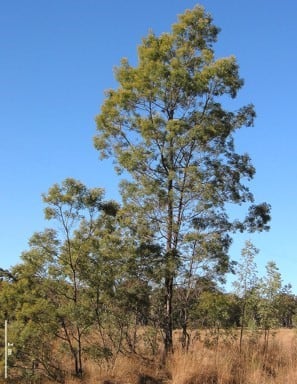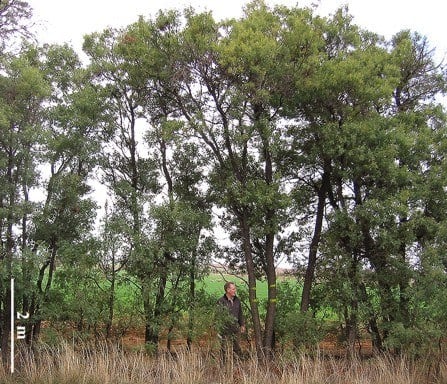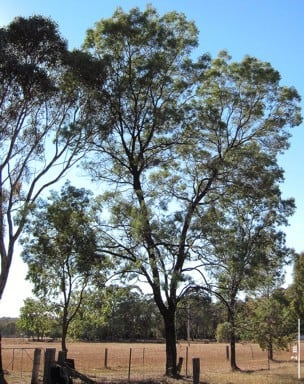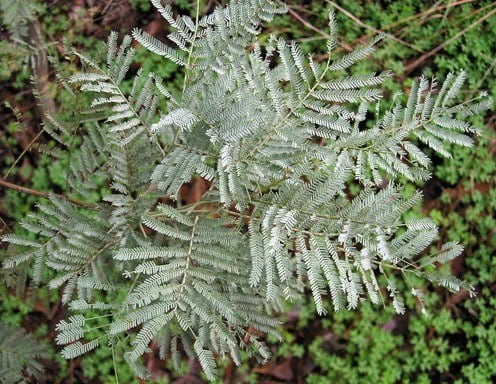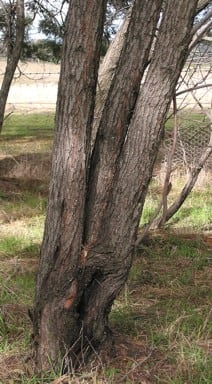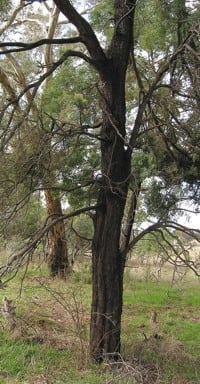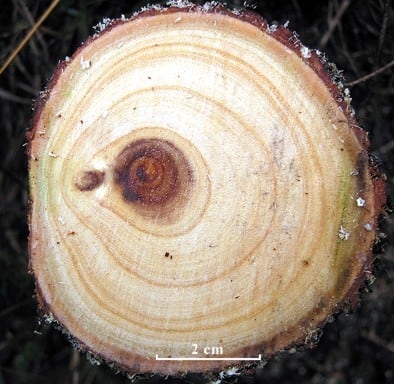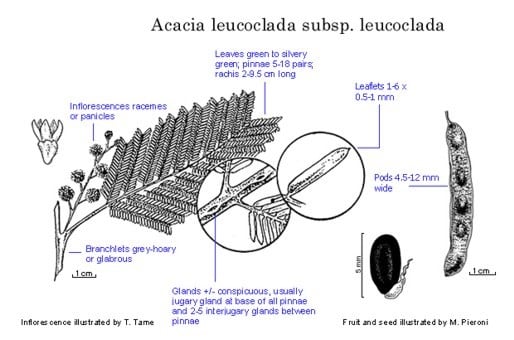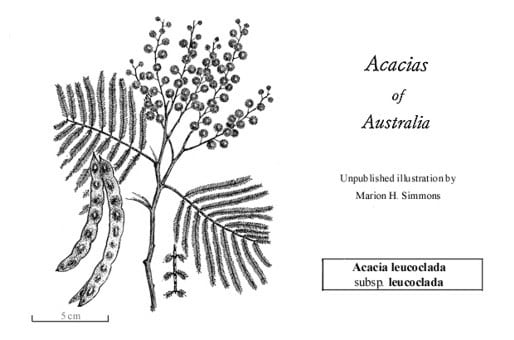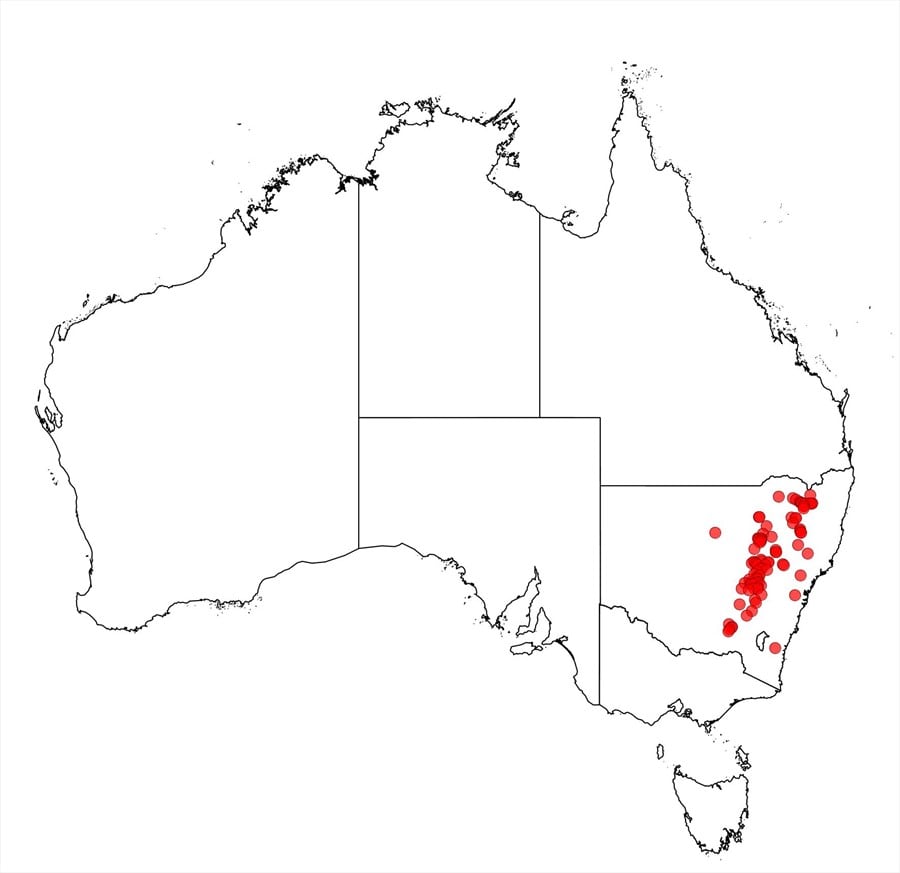Acacia leucoclada Tindale subsp. leucoclada
WATTLE
Acacias of Australia
Family
Fabaceae
Distribution
Occurs in N.S.W. on the western slopes from Warialda S to Wagga Wagga, common in the Pilliga Scrub, and rarely on the Northern and Southern Tablelands, in the Hunter R. Valley and at Howes Mtn.
Description
Tree or sometimes shrub to 10 (–13) m high. Branchlets hoary with grey hairs or glabrous. Leaves usually with 1 conspicuous jugary gland at base of each pair of pinnae and 2–5 often contiguous interjugary glands between most pairs of pinnae, or rarely 1 or 2 pairs without jugary glands and only 1 interjugary gland between pairs of pinnae, these glands of petioles and rachises glabrous or hoary; pinnules 0.5–1 mm wide.
Phenology
Flowers mainly July.–Oct.
Habitat
Grows in open forest usually in association with eucalypts and Callitris spp., in poor sandy or gravelly soils, often on basalt or acid granite.
Specimens
N.S.W.: 29 km S of Cobborah, E.F.Biddiscombe 336 (CANB, NSW); Warrumbungle Natl Park, W.Bishop 496 (NSW); Eulomogo Ck, 12.9 km S of Dubbo, C.K.Ingram s.n. (NSW47331); Bumberry, 5 Oct. 1956, M.D.Tindale s.n. (NSW).
Notes
Information on the biological and ecological features, and the utilisation potential, of this subspecies is given in B.R.Maslin and M.W.McDonald, AcaciaSearch: Evaluation of Acacia as a woody crop option for southern Australia, RIRDC Publication No. 03/017, 108–112 (2004).
FOA Reference
Data derived from Flora of Australia Volumes 11A (2001), 11B (2001) and 12 (1998), products of ABRS, ©Commonwealth of Australia
Author
M.D.Tindale
P.G.Kodela
Minor edits by B.R.Maslin & J.Reid
This identification key and fact sheets are available as a mobile application:
URL: https://apps.lucidcentral.org/wattle/
© Copyright 2018. All rights reserved.
